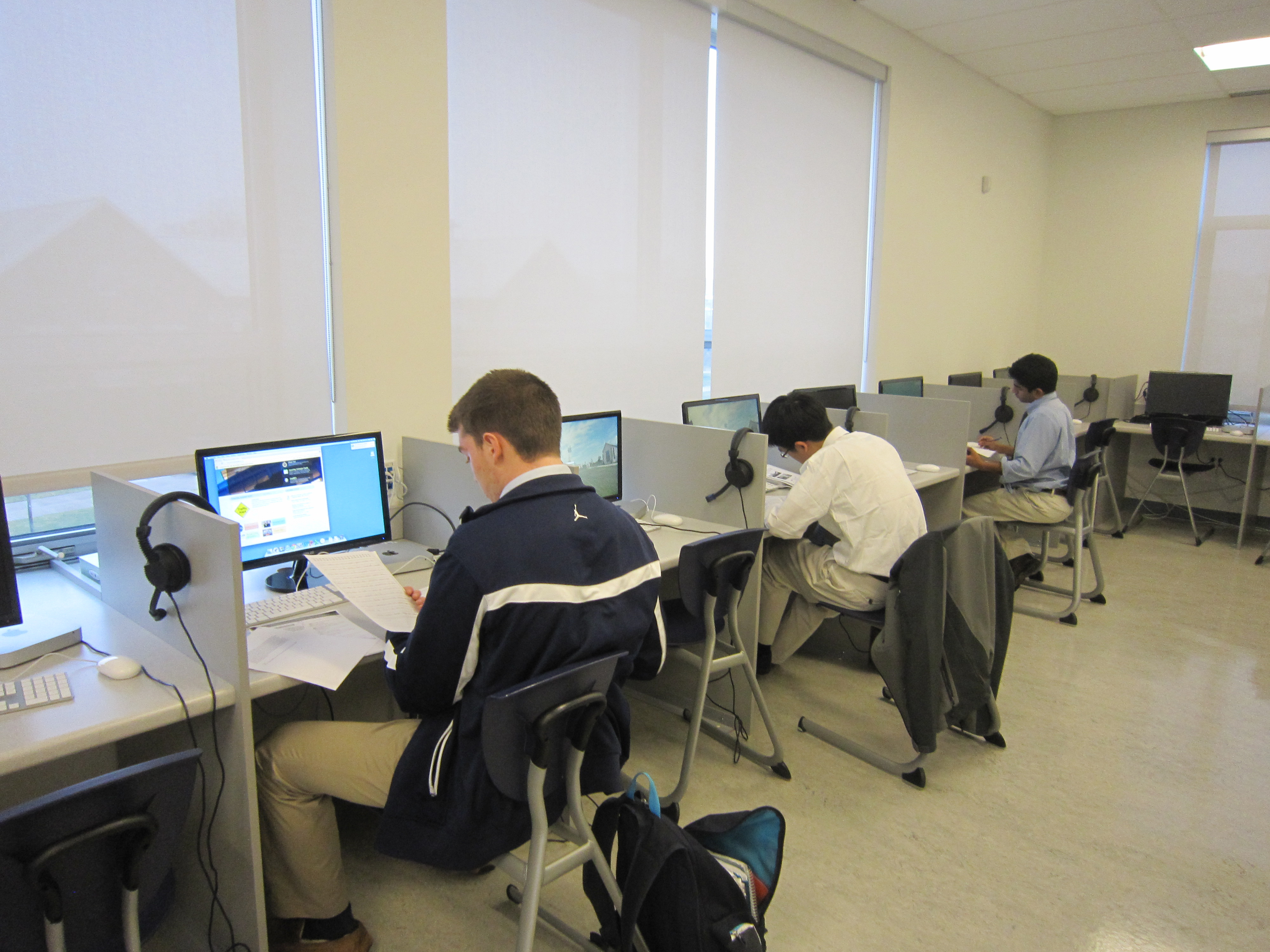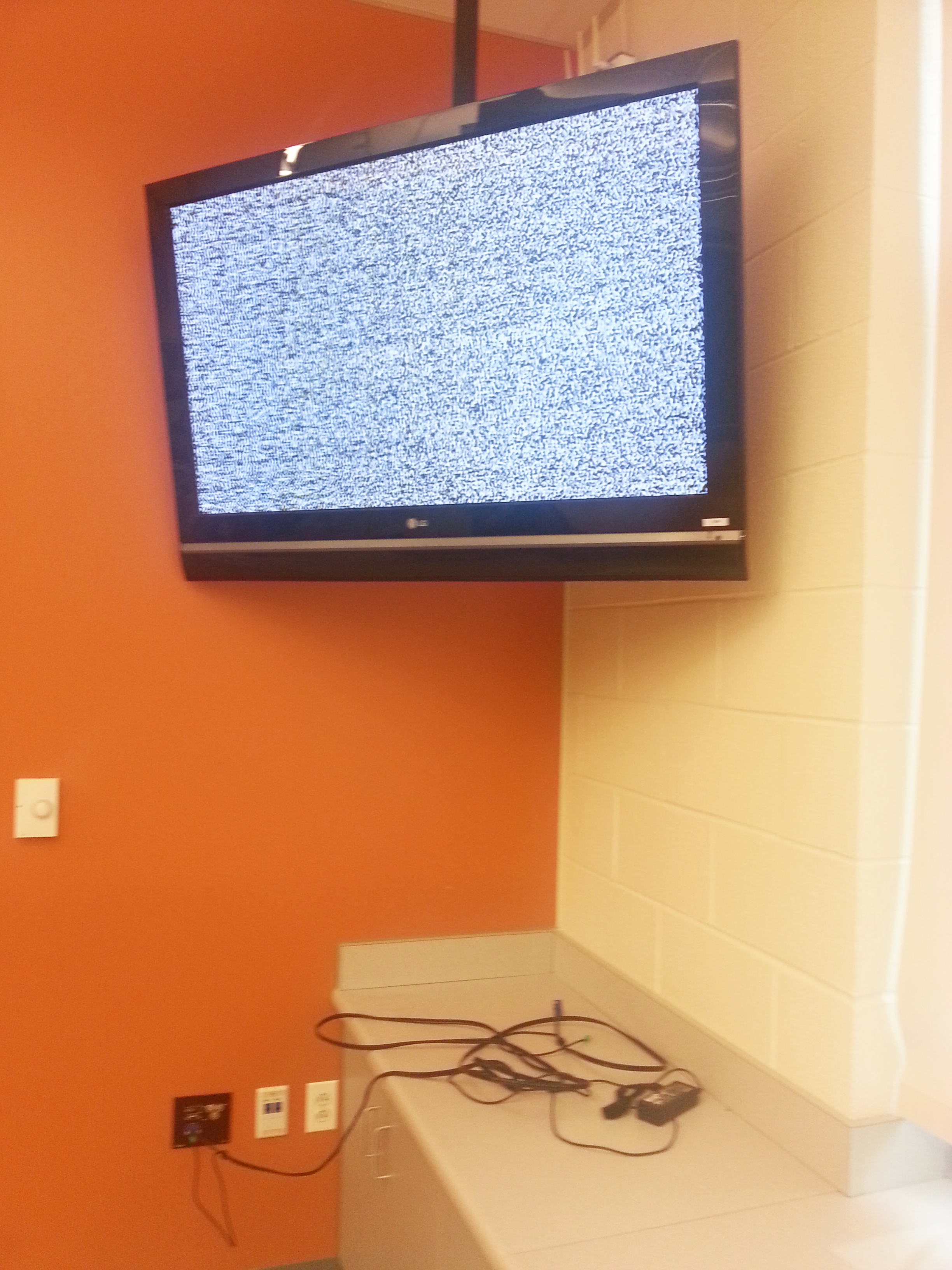Claudia Teti ’16: We live in a world that is becoming increasingly more dependent on technology. As such, it seems all but inevitable that a school such as the Episcopal Academy would begin to incorporate advanced technology into its classrooms. In 2008, an explosion of brand new technology was introduced to the EA community alongside the shiny new campus in Newtown Square. Flat-screen TVs were hung in practically every corner of the school, SmartBoards were added to many classrooms, and teachers found a new host of opportunities to incorporate technology in their everyday lessons. However, people have begun to question the excess and practicality of some of EA’s new technology. Is the abundance of flat-screens really necessary? Are the SmartBoards really reliable? Is Episcopal Academy’s technology excessive for the purposes of a day school?

Photo courtesy of Jenna Cooley ’17
According to Matthew Memmo, member of the Technology Department, EA is properly equipped. “I think we have good technology,” Memmo said after pausing to think for a moment. “You can always improve, but what we have in place is pretty nice. We have SmartBoards in classrooms and multiple laptop carts. I do think we need to get to a point where the technology is more reliable than it is, but for the most part we are meeting the needs.”
Memmo also shed light on the question of whether or not EA’s technology is always reliable. While many teachers welcome the opportunity to use technology in the classroom, others find that its malfunctions and unpredictable nature make it problematic.
As both students and teachers can attest, problems always seem to arise when using electronics in class. While Grace Wingfield, Chair of the Math Department, excitedly relayed that she always uses the technology to complement her traditional teaching methods, she still furrowed her brow and as she admitted that the technology can hinder classtime. “It is frustrating at times. I feel like in order for me to implement the technology to make it easier, I have to take five steps backward before I can take ten steps forward.” Wingfield also mentioned that the math department has recently started to use iPads in the classroom, in addition to its use of SmartBoards and Elmos.
Chiar of the Language Department, Marc Eripret, echoed Wingfield’s concern as he expressed how often he needs assistance when using technology in class. “We have been using technology more and more in our language classes. We have the language lab, the SmartBoards, listening activities, and videos. But, I think that because we are using more and more technology, we need more people to help us, which can put a class on hold.”
Although Memmo, Lake, and Merchant are all frequently available for assistance, their jobs consist of more than waiting around for technology problems in a classroom to arise. Eripret recognized this, saying, “Those guys are so busy with their jobs, and on top of that they have to help us. If something goes wrong in class, I want to be able to pick up the phone and say ‘HELP’ because my lesson plan is ruined if I do not get aid immediately but I can’t expect instantaneous assistance.”
Wingfield agreed on this point, suggesting that perhaps Episcopal should hire people who are specifically trained in the technology of certain subjects. After a thoughtful pause, Wingfield explained, “A lot of the people in the tech department have more than one task for their job. I may be heading to them with a hardware problem and somebody else with a software problem. It is just a lot of things that they need to respond to quickly. So, I think we need departmental support. I need a math and science person, who is looking for the latest technology to support teaching those subjects, which are similar teaching.”

Photo courtesy of Brittany Belo ’14
While technology has improved the classroom experience at Episcopal in many aspects, it has also caused problems that need to be addressed. Though many devices see frequent use in classrooms and lessons, some are not used at all. Much of the technology is unreliable, and both teachers and students can never be certain that their attempt at using electronics will work. When it does not prove to work, help can sometimes be hard to come by to fix the issue at hand. As Mr. Memmo says, “You can always improve,” and if the school continues to improve on the issues we have, maybe then technology can become one of the most useful tools in the classroom.